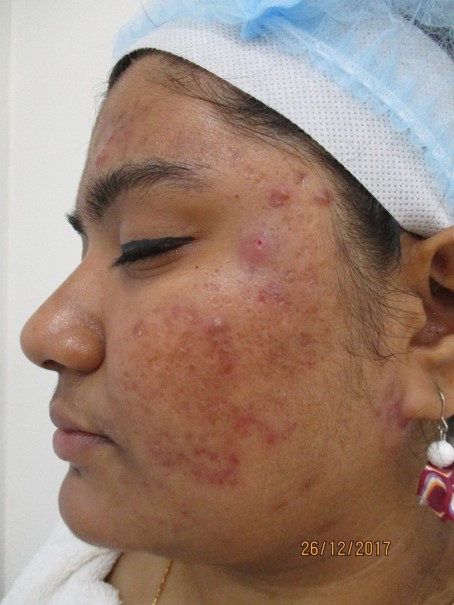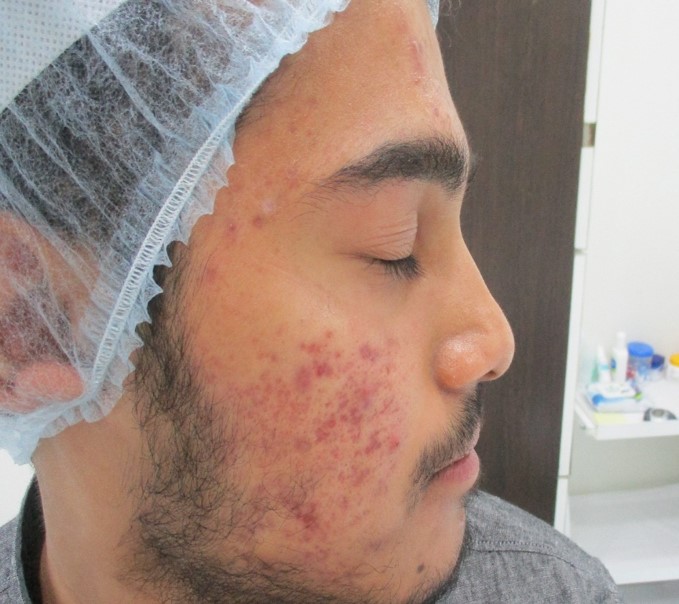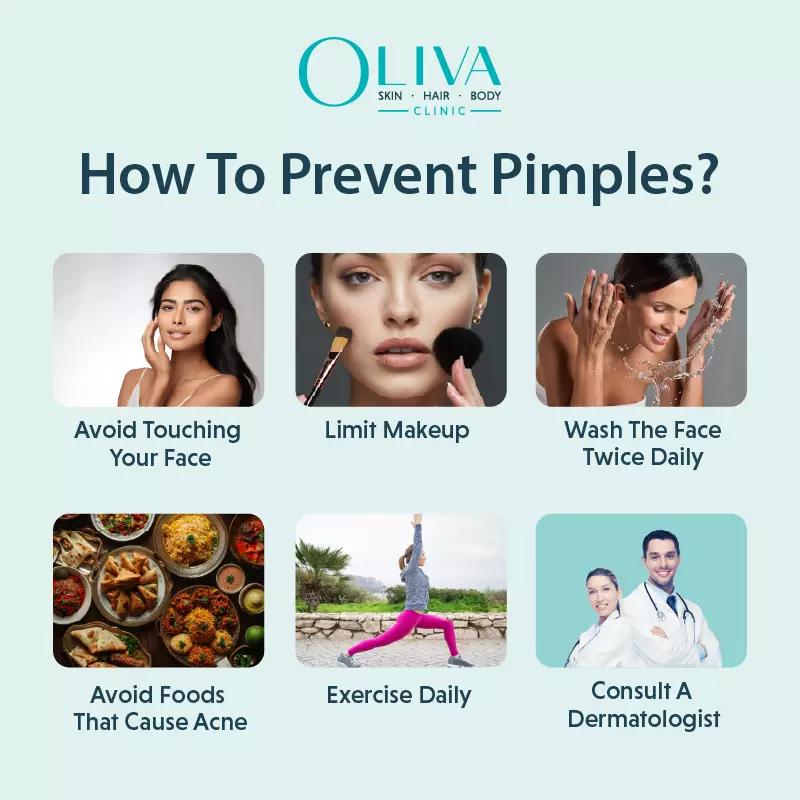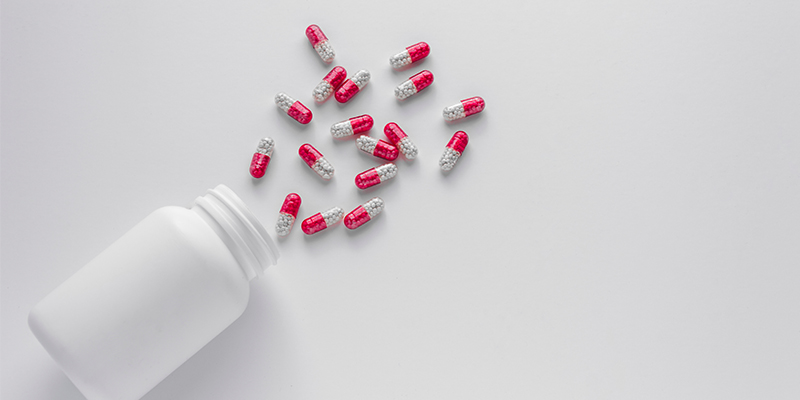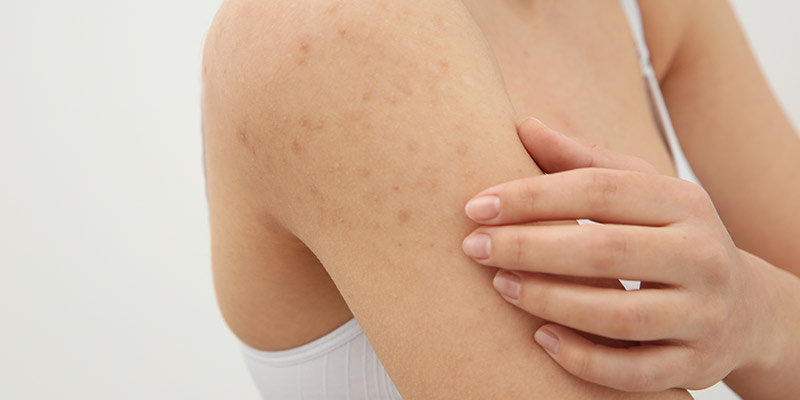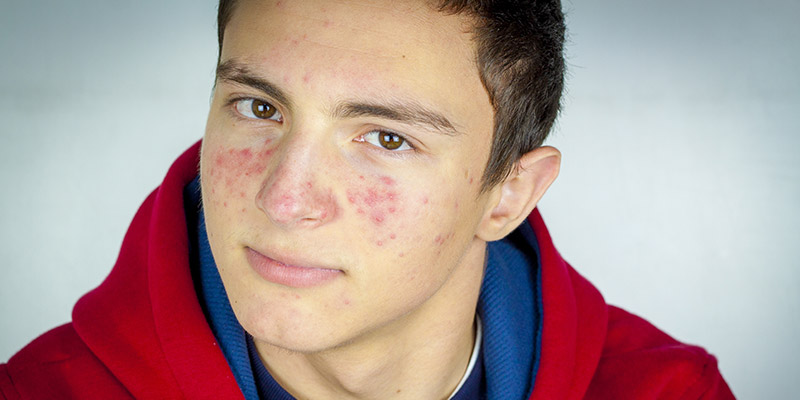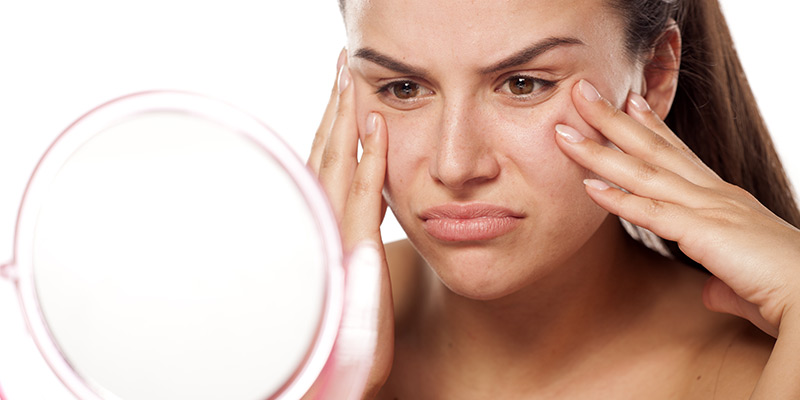Table Of Content
Pimples On The Cheeks: Causes, Home Remedies, Treatments & Prevention
A breakout can be a significant skin concern, especially when it is painful, frequent, and stubborn. Our cheeks come in contact with a lot of things that may cause these pimples. The good news is that acne on the cheeks is possible to treat. This article will explore all the reasons for pimples on the cheeks and how to treat them.[1]
Table Of Content
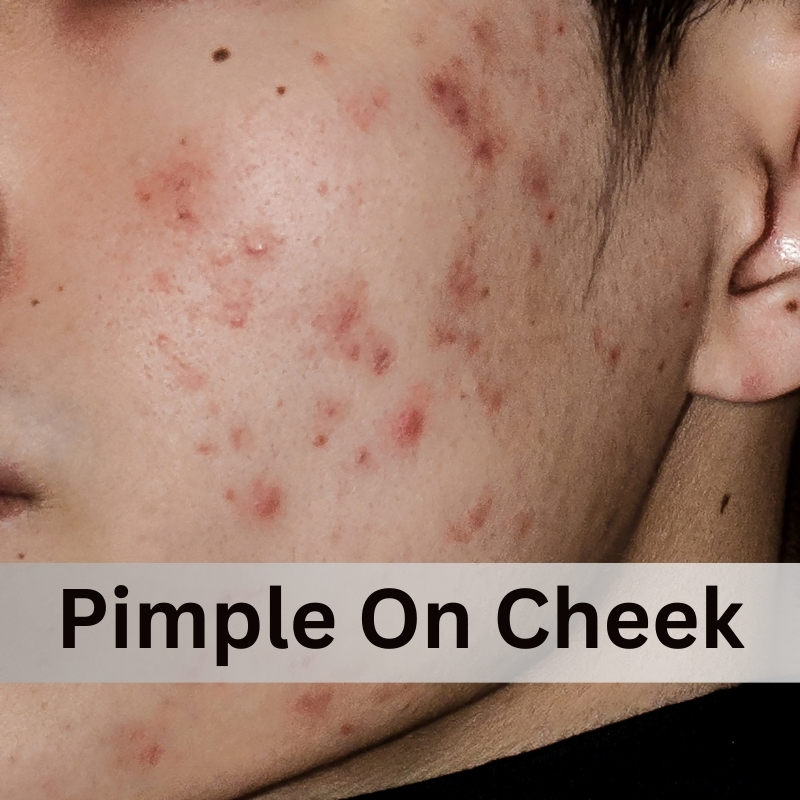
What Is Cheek Acne?
The term ‘cheek acne’ or ‘pimples on the cheeks’ refers to a common skin condition that occurs due to the clogging of pores resulting in blackheads, whiteheads or inflamed bumps.
What Causes Pimples On The Cheeks?
There can be several reasons for acne on the cheeks. Just like any other acne, it occurs due to the build-up of excess oil and dead skin cells. Here are some of the common causes of pimples on the cheeks –
-
Increased Sebum Production:
An apparent increase in sebum production may clog the pores, leading to acne. [2]
-
Hormonal Changes:
Hormonal changes are common during puberty, menstruation, pregnancy and menopause. These fluctuations in the body’s hormones may worsen due to conditions like insulin resistance and PCOS. When the body starts producing excess androgens, they stimulate the oil glands to produce more oil, which results in clogged pores and inflamed bumps.
-
Diet:
Diet has a direct impact on our skin. Having a diet full of oily and greasy food may result in acne on the cheeks. There are a lot of talks about high glycaemic index foods such as white bread, baked foods and fries that also contribute to cheek acne. They are known to cause a sharp increase in the body’s blood sugar levels, resulting in pimples.
-
Wrong Skincare Products:
Using comedogenic skin care products may result in clogged pores and cheek pimples.
-
Stress:
Stress elevates the risk of acne on the cheeks as it may lead to excessive sebum production.
-
Touching Your Face:
Frequent touching of the face with dirty hands and the excessive use of phones increase the spread of bacteria, which clog the pores and cause pimples on the cheeks.
-
Dirty Pillowcases:
Sleeping on dirty pillowcases or sheets may also constantly irritate or rub the skin and cause acne.
-
Greasy Cosmetics:
Applying very oily cosmetics may clog the pores and lead to cheek acne.
-
Prolonged Sun Exposure and Highly Humid Conditions:
Prolonged sun exposure and high humidity makes the oil glands produce excess sebum causing acne.
-
Medications:
Certain medications like corticosteroids may result in cheek acne as a side effect.
What Do Pimples On The Cheeks Look Like?
Pimples on the cheeks look like just any other pimple or acne. It can be inflammatory or non-inflammatory and can appear as whiteheads, blackheads, red blood-filled bumps, pus-filled pustules or severe nodules and cysts.
How To Prevent Acne On The Cheeks?
There are several tips that can help to prevent acne on the cheeks. These include –
-
Change Your Pillowcase Regularly:
It is a good hygiene practice to change your pillowcase and sheets once or twice a week to prevent acne.
-
Clean Your Phone:
Make sure to clear the surface of the phone from time to time before putting it on your face.
-
Follow A Proper Skincare Routine:
Make sure to include non-comedogenic skincare and makeup products to avoid clogging of pores and reduce the chances of cheek acne. [3]
-
Keep Your Hands Clean:
If you have a habit of frequently touching your face, be sure to clean your hands regularly.
Home Remedies To Treat Pimples On The Cheeks
Home remedies for pimples may be useful to some people, but they largely depend on the severity of cheek acne. Read to learn about the useful home remedies to treat mild to moderate pimples on the cheeks –
-
Tea Tree Oil:
Tea tree has anti-bacterial properties that help to reduce inflammation and redness. Use a few drops of tea tree oil and dilute it before applying to the affected areas.
-
Aloe Vera:
Aloe vera is anti-inflammatory and soothes the inflamed bump. Apply it directly to reduce the swelling.
-
Green Tea:
Green tea is full of antioxidants that help in accelerating wound healing. Brew some green tea and let it cool. Dab a cotton ball to apply it to the affected areas.
-
Honey:
Honey is a known anti-bacterial agent that helps to lessen the infection. Apply a tablespoon of honey all over the affected area and let it sit there for 15-20 minutes before rinsing it off.
-
Cucumber:
Cucumber is soothing and calms down the inflammation associated with pimples on the cheeks. Use it as a mask or apply its juice directly to the affected areas.
-
Lemon Juice:
Lemon juice is anti-bacterial and helps to reduce the infection. Dilute it with rose water before applying it to the pimples.
-
Turmeric:
Turmeric is known for its anti-inflammatory and anti-bacterial properties. Apply it as a paste to the affected areas and let it sit for 15 minutes.
-
Jojoba Oil:
Jojoba oil helps in regulating sebum production and reducing inflammation. Use it by mixing it with a moisturiser on the affected areas.
How To Get Rid Of Pimples On The Cheeks?
It is best to get a customised treatment from a professional dermatologist based on the cause and severity of the acne. The first line of treatment usually starts with medications. For moderate to severe acne, the dermatologist may recommend professional treatment options like chemical peels, intralesional injections, comedone extractions, laser toning, and more.
When To Visit A Dermatologist?
If you have recurrent and painful pimples on the cheeks, then visiting a qualified dermatologist to seek appropriate treatment is advisable. The dermatologist will tailor the treatment according to your skin type and concern to offer the best results in a safe and effective manner. The next section explores the top professional treatment options that offer science-backed results for cheek acne.
Professional Treatments By Dermatologists For Pimples On The Cheeks
To treat pimples on the cheeks, the dermatologist will first conduct an initial diagnosis to understand the possible causes and severity of the acne. This will help customise a suitable treatment. Some professional treatment modalities include –
-
Oral And Topical Medications:
Oral and topical medications are the first line of treatment for acne on the cheeks. These usually include retinoids and antibiotics that help reduce acne-causing bacteria and effectively treat pimples on the cheeks.
-
Chemical Peels:
A chemical peel solution consists of natural derivatives that help eliminate dead skin cells and unclog the pores to treat acne. [4]
-
Comedone Extraction:
The dermatologist uses a sterile instrument to extract the whiteheads and blackheads, which improves skin texture immediately.
-
Intralesional Injections:
These include corticosteroid injections that are used to reduce the inflamed cysts or severe pimples on the cheeks. They offer rapid relief from swelling and pain.
-
Laser Toning:
Laser toning is a revolutionary treatment that dermatologists recommend in conjunction with other acne treatments to improve your skin tone.
Now, you know all about the causes, home remedies and professional treatments for pimples on the cheeks. Go ahead and make an informed decision.
Frequently Asked Questions on Cheek Acne
Using an over-the-counter medication such as benzoyl peroxide may help reduce cheek acne overnight. However, it may or may not give you the desired result.
Using ingredients like tea tree oil, honey or jojoba oil helps in treating acne at home. However, home remedies remain unproven and risky.
Cheek acne occurring on only one side may be because of the constant contact with a dirty phone or pillow cover.
Pimples on the left cheek may indicate a sleeping position or phone usage on the left side.
The exact cause of baby acne on the cheeks remains undetermined. It may be the result of clogging of pores.
The dermatologist may prescribe hormonal medications to treat hormonal acne on the cheeks.
It is best to seek professional treatment from a dermatologist for a holistic diagnosis of the cause and customised treatment.
Yes, they can occur due to hormonal changes in the body.
A study indicates that a deficiency of vitamin D may lead to acne on the cheeks. [5]
The sudden breakouts may be the result of hormonal changes, stress, medications or new skincare/makeup products.
Pimples inside the cheeks may occur due to poor oral hygiene.




